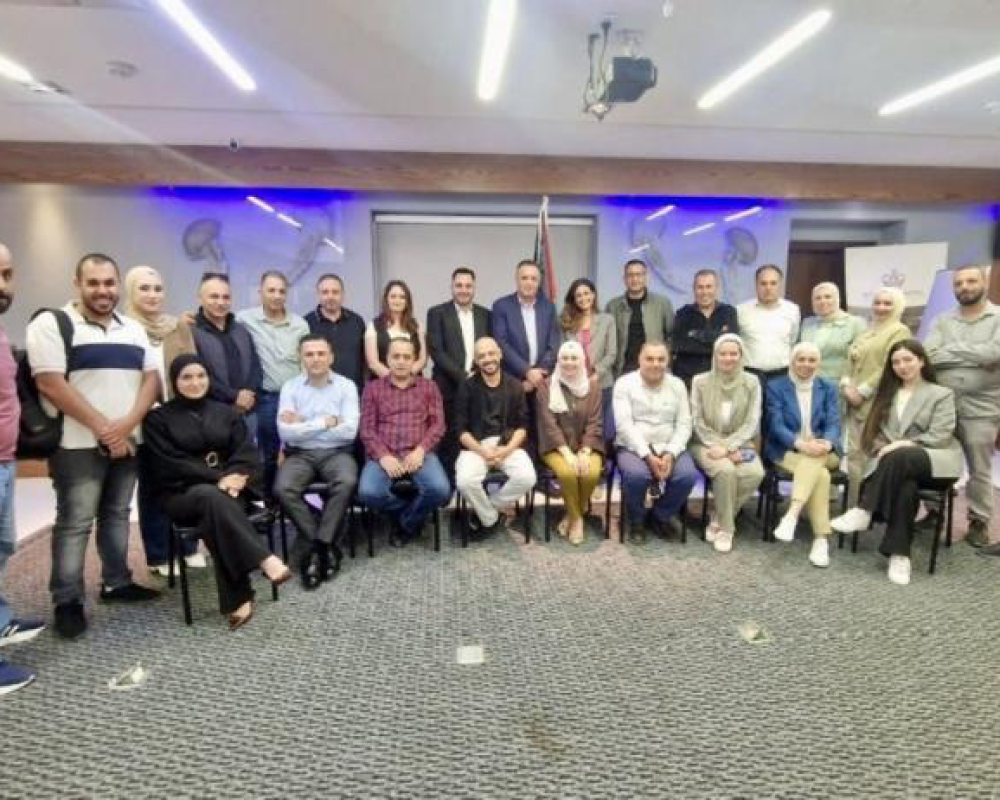Listen to the article
Palestinian media leaders gathered in Ramallah on Monday to explore how artificial intelligence could strengthen their ability to tell Palestinian stories amid ongoing regional conflict and algorithmic challenges in global information spaces.
The World Association of News Publishers (WAN-IFRA) organized the full-day workshop, bringing together chief editors from multiple Palestinian media institutions, including Wattan Media Network. The session focused on practical applications of AI technology to enhance journalistic work while preserving professional standards.
AI specialists Mohammad Abu Maileq and Tamer Mansour led the training, covering critical areas including fact-checking methodologies, techniques for enhancing Palestinian digital content’s reach, and strategies for newsrooms to integrate AI as a supportive tool rather than a replacement for human journalists.
Nasser Abu Bakr, who heads the Palestinian Journalists Syndicate, opened the meeting by emphasizing the urgent need for Palestinian media organizations to adapt to technological advances. “In our current landscape, understanding and utilizing artificial intelligence isn’t optional—it’s essential for ensuring Palestinian perspectives reach global audiences,” Abu Bakr noted.
During his remarks, Abu Bakr highlighted the extraordinary efforts of journalists operating in Gaza, who continue reporting despite catastrophic conditions. These reporters have managed to document the ongoing conflict while working under extreme duress, using whatever technological resources remain available to them.
The workshop addressed a central challenge facing Palestinian media: countering algorithmic bias on major digital platforms. Participants discussed how content moderation systems and distribution algorithms often disadvantage Palestinian perspectives, creating additional barriers to reaching international audiences.
Shorouq Al-Asaad, Director of WAN-IFRA’s regional program, characterized the situation as a “battle over narrative” in which technological tools play an increasingly decisive role. “Palestinian journalists face not only physical dangers but also digital obstacles in sharing verified information with the world,” Al-Asaad explained. “Israel’s sophisticated disinformation campaigns often overshadow Palestinian reporting, making it crucial that we leverage every available tool, including AI, to amplify factual coverage.”
The training provided practical demonstrations of how AI can assist in content creation, translation, verification, and distribution while maintaining journalistic integrity. Participants explored specific AI applications that could help overcome language barriers, enhance multimedia content, and identify disinformation.
Media organizations represented at the meeting expressed particular interest in using AI to analyze large datasets, identify patterns in coverage, and create more engaging visual presentations of complex information. The participants also discussed ethical guidelines for implementing these technologies responsibly.
The Ramallah gathering comes amid growing recognition in global journalism circles that artificial intelligence is transforming news production and distribution. For Palestinian media specifically, these technologies offer potential solutions to longstanding challenges in reaching international audiences with evidence-based reporting from conflict zones.
Following the intensive training session, participants committed to implementing specific AI tools in their newsrooms while maintaining human oversight of all editorial decisions. The workshop concluded with Al-Asaad thanking the attendees and trainers Abu Maileq and Mansour for their contributions toward advancing AI implementation in Palestinian journalism.
Media experts observe that this initiative reflects a broader trend of news organizations in conflict zones embracing technological solutions to overcome structural disadvantages in the global information ecosystem. For Palestinian journalists specifically, adopting AI tools represents a strategic response to both technical challenges and geopolitical realities that have historically limited their ability to shape international understanding of events in the region.
Verify This Yourself
Use these professional tools to fact-check and investigate claims independently
Reverse Image Search
Check if this image has been used elsewhere or in different contexts
Ask Our AI About This Claim
Get instant answers with web-powered AI analysis
Related Fact-Checks
See what other fact-checkers have said about similar claims
Want More Verification Tools?
Access our full suite of professional disinformation monitoring and investigation tools




9 Comments
I’m curious to learn more about the specific AI applications they’re exploring – things like automated translation, sentiment analysis, and content optimization could have a big impact. It will be interesting to see how this pilot progresses and what best practices emerge.
I’m glad to see Palestinian media institutions proactively addressing the challenges posed by algorithmic information systems. Integrating AI in a thoughtful way, while preserving journalistic integrity, is crucial for strengthening local voices and countering biased narratives.
Absolutely. Maintaining human oversight and professional standards will be key as they incorporate AI into their workflows. It’s an important step forward for Palestinian media.
Kudos to the Palestinian Journalists Syndicate and WAN-IFRA for spearheading this important workshop. Arming local media with AI-powered capabilities to combat misinformation and amplify their reporting could have far-reaching implications for the region.
While AI can be a powerful aid for journalists, it’s heartening to see the emphasis on maintaining human oversight and professional standards. Striking the right balance between technological innovation and ethical journalism will be crucial for the success of this initiative.
This initiative by WAN-IFRA to train Palestinian editors on AI-powered fact-checking and content amplification is a valuable investment. Equipping local media with the right digital tools can empower them to more effectively tell their stories and shape the global conversation.
Fascinating that Palestinian media leaders are exploring AI tools to enhance reporting and combat misinformation. As the information landscape becomes increasingly complex, leveraging AI technology could be a game-changer for ensuring Palestinian narratives are heard.
The need for Palestinian media to adapt to technological advances is undeniable. This workshop seems like a proactive step in the right direction, equipping local editors with the knowledge and tools to leverage AI responsibly and effectively.
Agreed. As the information landscape continues to evolve, it’s vital that Palestinian media organizations stay ahead of the curve and ensure their voices are heard on the global stage.